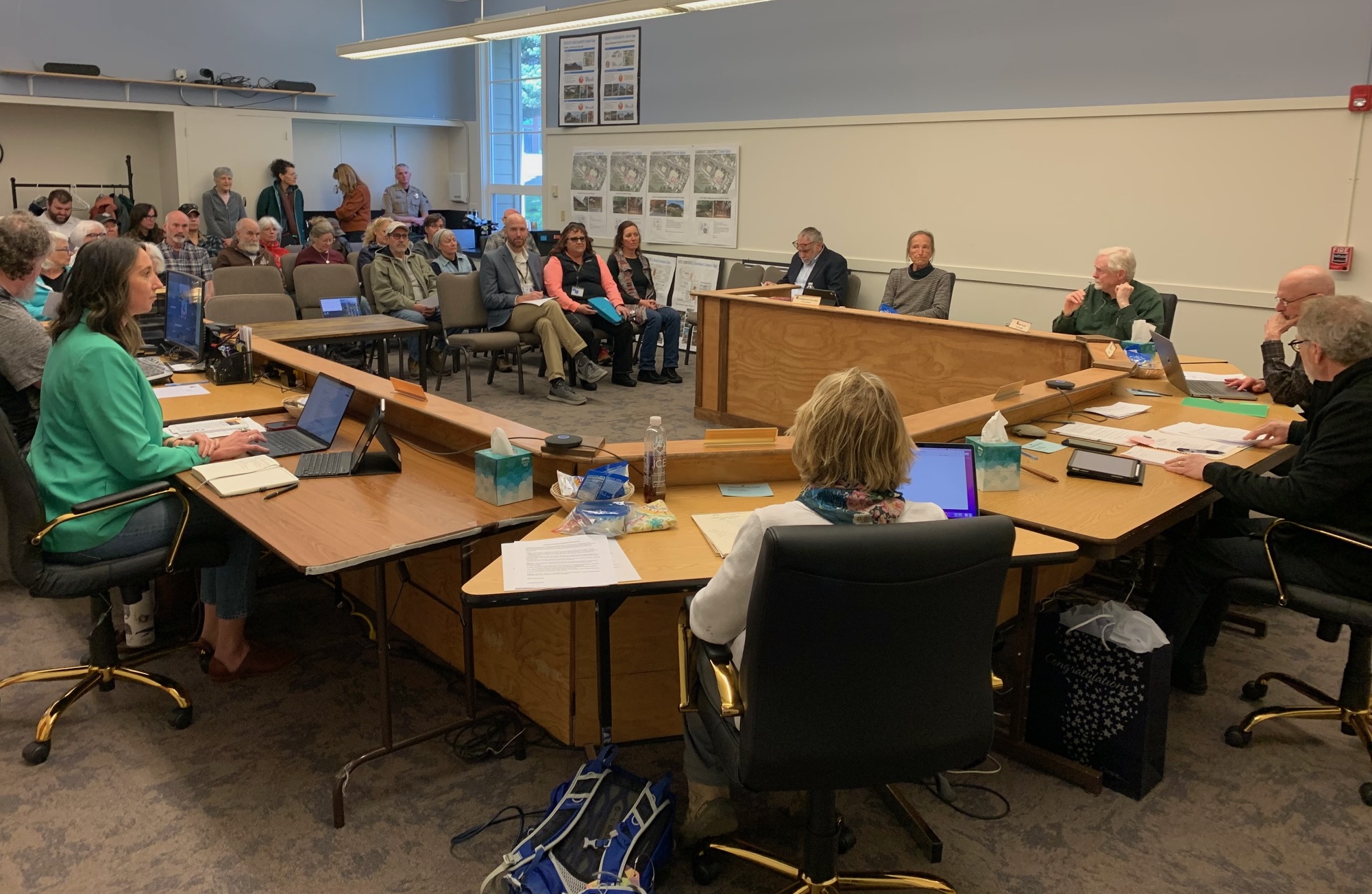
By GARRET JAROS/YachatsNews
YACHATS – Not in our neighborhood was the general tenor of testimony at the Yachats’ city council meeting Wednesday from residents opposed to a designated campsite for homeless people in the community.
It was standing-room only at the meeting with more than 50 people attending in person and many more online. After two public hearings, the council passed a camping ordinance March 20 that outlined where camping would not be allowed on public property. It did not designate where camping would be allowed.
The ordinance was is in response to a state law that went into effect last July that stipulates camping on public property is legal when no shelter is available – with the caveat cities can determine which properties to make available – if they have a camping ordinance. The ordinance is not required of cities, but without one they have limited legal recourse.
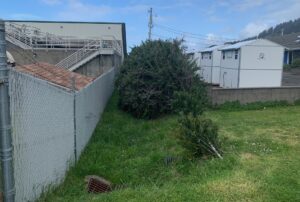
Discussing possible places where camping might be allowed was not on the council’s agenda, but became a hot topic after the city made public several areas where camping is not banned. Three of those sites were on city-owned property in hilly residential areas. But the most likely spot – at least so far – is on a thin strip of property between the city’s wastewater treatment plant and the Yachats Community Presbyterian Church.
Before opening the meeting to public testimony, Mayor Craig Berdie made clear the city had received more than a dozen letters from citizens who raised important safety concerns.
“For example, concern about fire,” Berdie said. “We’re learning a lot from your letters.”
He went on to emphasize that figuring out where camping ight be allowed is ongoing and that the tone of some letters assumed it was a “slam dunk” that properties where it has not been banned would be used.
“There have been no decisions,” Berdie said. “It is very much a work in process.”
He then reiterated what he and other councilors have previously stated, which is that the purpose of the ordinance is not to punish the homeless but to get them the help and services they need. And he encouraged concerned citizens to get involved with the camping ordinance work group which is actively involved in formulating policy and finalizing the mission and purpose. The work group has met twice already and meet again at noon April 29 at the Commons.
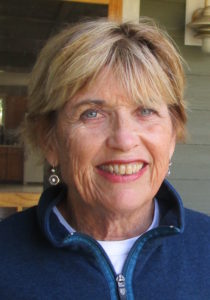
Councilor Mary Ellen O’Shaughnessy re-emphasized that “no specific location has been designated” and that city officials are now considering where is best.
“Part of it is maybe to Newport to get services … again this is mainly for people that are causing problems or they’re sleeping in doorways,” O’Shaughnessy said. “And to treat people with compassion and understanding.”
While the law says there must be a designated place, O’Shaughnessey said, “We are going to come up with criteria that are gonna keep you safe and keep our houses safe too.”
On Monday, the U.S. Supreme Court will hear a case originating from Grants Pass about how far cities can go to clear homeless camps. It centers around whether it is legal to fine or arrest people for sleeping outside on public property if there’s no shelter available.
Public testimony
First to give public testimony was Bob Barrett, pastor of the Presbyterian church which opened a cold weather emergency shelter for the unhoused in February 2023. Barrett spoke on behalf of the work group.
“As of this date we do not have any recommendations with regards to a designated camping location,” Barrett said. “And realize there that are concerns and limitations with each of the identified properties.”
The group will continue to get feedback from the community and is awaiting to see how or whether the Supreme Court’s decision will impact the ordinance and its implementation.

“We are also mindful that currently there is only a small handful of individuals camping within Yachats city proper on public land,” Barrett said. “And despite public perception, the number of truly unhoused individuals currently here in Yachats is lower than it has been in recent years.”
A recent count revealed just 10 “unsheltered individuals” living in the area with most living outside city limits on federal forestland, said Barrett, adding it is the work group’s hope the ordinance will be rolled out and enforced slowly as the city develops the infrastructure needed to support those impacted.
“At the same time, the city will now have the ability to ask the one to three individuals who may be camping on prohibited city property or camping in a manner that is dangerous (blocking building entrances) to move without necessarily suggesting an alternative.”
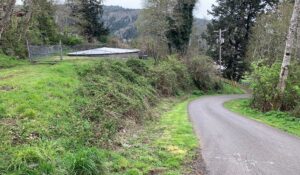
Next to speak was Julie Bailey, who lives adjacent to the property on Radar Road identified by the city as a place where camping has not been banned. She highlighted the fire danger associated with the neighborhood’s thick foliage and trees as well as the narrow, winding and unlit roads that might hamper a quick response from firefighters. She is also concerned about an unsupervised camp with no amenities.
“I don’t want to be NIMBY, I want to be a compassionate, but I am worried about my safety,” Bailey said. “I live alone. I’m not within hearing of my neighbors. I don’t want to deal with a drug mental health episode. I want to feel safe.”
Four more residents voiced their opposition, which also touched on personal safety as well as safety for children if a camp is placed near the skate park and playgrounds adjacent to the wastewater plant, theft, sanitary and water issues, and concern that any camp will only attract more and more campers.
Work group member Morgen Brodie said she understands the fears but also wanted to interject a “dose of reality” so people keep in mind what Barrett said about the actual numbers involved and where those people are camping.
“I understand people’s concern about ‘What’s going to happen in my back yard’, ” Brodie said. “But I think in reality the numbers don’t support that we are going to be invaded by huge numbers of people. Many of the people who are already staying in the community are part of the community, are working in the community, are doing public service in the community, or people that we know, or people who are watching out for their neighbors in the community.
“So I just don’t want to see anyone demonized and I don’t want to see anyone having to be afraid of what might happen,” she said.
Another issue raised by opponents was that Yachats should follow the example of other cities, including Waldport, in not telling people where in the city camping is not banned. The mayor addressed that before moving on to other council business.
“Our ordinance is similar to Waldport,” Berdie said. “And Waldport does have property that people can camp on … Our intent was to follow Waldport in that way. Our citizens felt like it would be appropriate to … get help, to get people to services … the ordinance does not say ‘This is where you can camp’.”
Interim council member

After a short question and answer period with two candidates who applied to fill the city council vacancy left by the resignation of Greg Scott, the council chose Anthony Muirhead, general manager of the Adobe Resort, to serve the remainder of Scott’s term, which ends Dec. 31.
Five candidates originally applied for the position but three withdrew, including one Wednesday morning. The other candidate being considered was Nicole Hedlund, a licensed massage therapist and nutritionist who is on the Yachats Youth and Families Activities Program board.
The council voted 3-2 to appoint Muirhead, who had served 22 months also as an appointed council member from February 2021 through December 2022. He did not win a seat in the November 2022 general election.
Because of his prior service, Muirhead said in his application he can get up to speed quickly and bring “a different perspective as an active member of the business community. I try my best to bring a voice for local workers not just business owners.”
Scott recognized
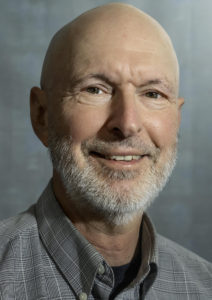
Scott was recognized for his longtime service to the community and the council as well as he and wife Nan’s philanthropy in the community. Wednesday marked Scott’s last day on the council. He resigned in February citing upcoming travel plans that would diminish his capacity on the council. His resignation is effective at the end of the month.
Berdie spoke kindly of Scott and his accomplishments throughout the years before presenting him with an honorary plaque.
“One of Yachats most dedicated citizens, Greg Scott,” Berdie said by way of introduction. “He has contributed so much to the city, serving initially for 11 years on the city council, and again from 2021 until now.”
Berdie then ticked off an arms-length-list of Scott’s accolades (some along with his wife) that included – being a pioneering member of Yachats Trails Crew, initiating and maintaining work on the Amanda Trail, helping construct the second Amanda Trail bridge and being one of its largest donors, the city’s adoption of the Trails committee in 2009, contributions to the Commons, founding member of View the Future, and donating to those in need through the Presbyterian church.
“Thank you Greg for your wisdom, guidance, institutional memory and leadership in the council,” Berdie concluded along with a big round of applause from the audience.
In other business:
- The council amended its urban renewal budget in order to allocate $600,000 for a new Yachats library building. The money ensures the library will not lose upwards of $270,000 in grants. The current 1,200 square foot library building, which is 50 years old, will be demolished and a new 2,400 square foot building will be erected at the same location. A soil report released in November found the building’s current foundation could not support remodeling plans and it was determined less expensive to build a new one. The approximate cost is estimated at $1.46 million. Construction is expected to begin in June. The amended budget will have minimal impact on the city’s 20-year plans, according the city’s finance committee.
- Heard a presentation and pitch by Lincoln County winter shelter manager Chantelle Estess for funds to help support next winter’s operations. The county expects 2024-25 shelter operating costs to be $820,000. Sixty-six percent of people who stayed at the shelter this year were from Lincoln County, dispelling the myth that “if you build it they will come” from other regions, Estess said. Forty-three percent of shelter users were over age 50, with the oldest being 83. Seventeen percent were veterans.
- Lincoln County Sheriff Curtis Landers presented an option for Yachats to get a contract deputy through a shared agreement with Waldport. The Waldport council agreed to consider the proposal at its meeting last week. Yachats council agreed to look into the financial feasibility of adding the service at an estimated cost of $150,000, but made no decision.
- Garret Jaros is YachatsNews’ full-time reporter and can be reached at GJaros@YachatsNews.com


